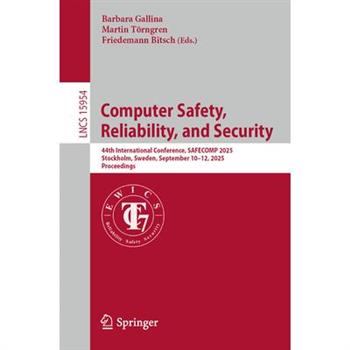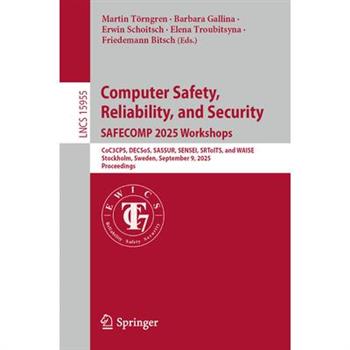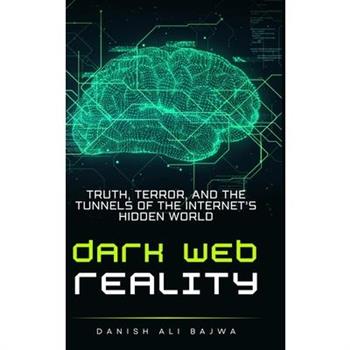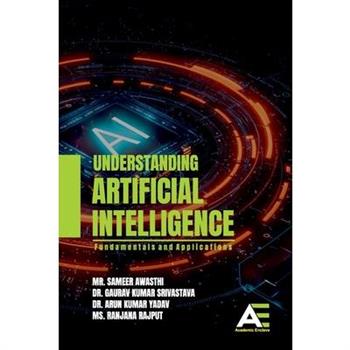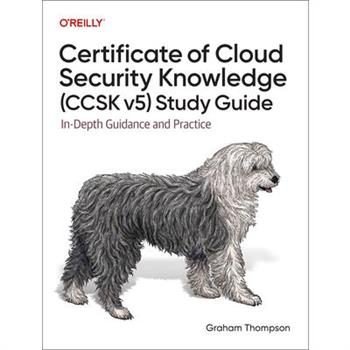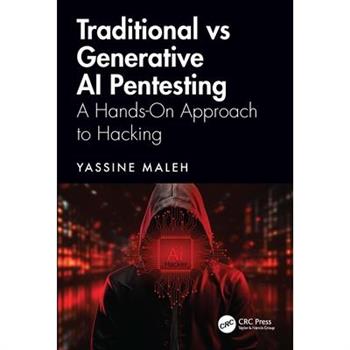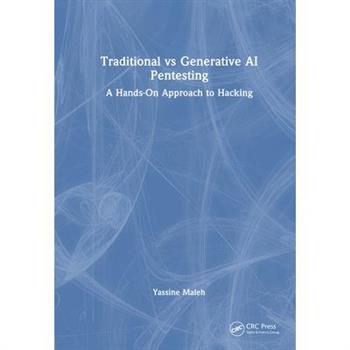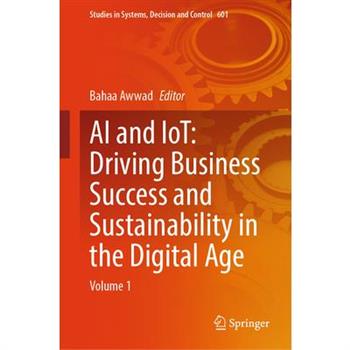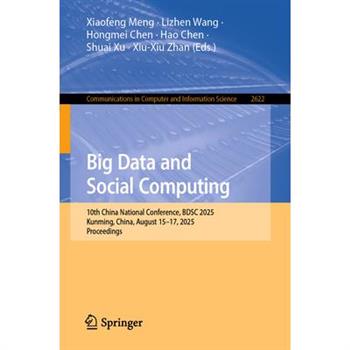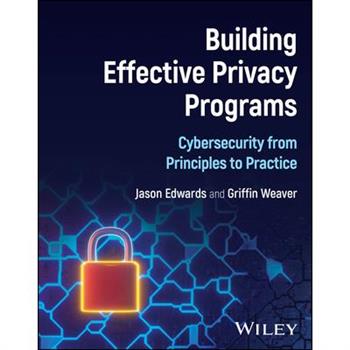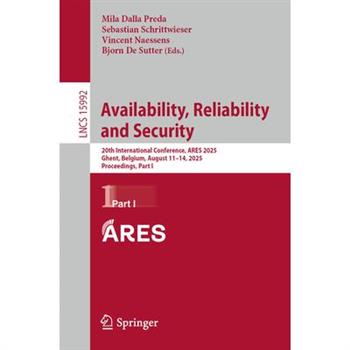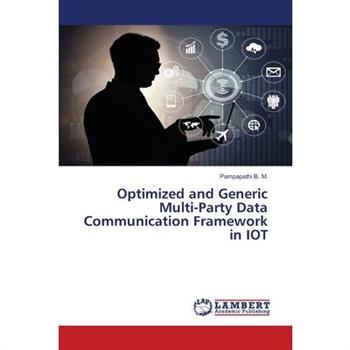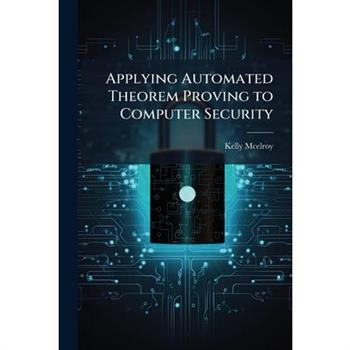The $10 Million Instagram Funnel
In $10 Million Instagram Funnel, Brian Mark shares the proven strategies he used to grow a thriving online fitness business without paid ads, complicated funnels, or a website. This book is a step-by-step guide for fitness professionals looking to attract high-paying clients, generate consistent leads, and scale using organic social media. Brian breaks down how to build a standout personal brand, create content that converts, and implement a simple system for lead generation and sales. Whether you're just starting or ready to grow, this book gives you the blueprint to build a six-figure fitness business with ease.
The $10 Million Instagram Funnel
Brian Mark shares the proven strategies used to grow a thriving online coaching company without paid ads, complicated funnels, or a website. This book is a step-by-step guide for business owners looking to attract high-paying clients, generate consistent leads, and scale using organic social media. Brian breaks down how to build a standout personal brand, create content that converts, and implement a simple system for lead generation and sales. Whether you're just starting out or ready to grow, this book gives you the blueprint to build a six-figure business with ease.
The Podcast Pantheon
Spanning the most popular podcast genres--true crime, comedy, sports, relationships, and more--culture critic and Vulture's Start Here columnist Sean Malin introduces the first comprehensive canon in podcast history. Featuring a foreword by award-winning actor and producer Jon Hamm. The Golden Age of podcasts is upon us. With over fifty official podcast networks, more than three million programs of every imaginable category available for download, and tens of millions of unique listens and views every week in the US alone--plus, our favorites being adapted into dozens of beloved films, TV series, and books--podcasts are now part of the fabric that makes up our everyday global media. Finally, here is an exclusive insider's perspective told through 101 different shows across dozens of genres. The Podcast Pantheon is the first book of its kind: A resource for discovering podcasts and learning more about how this multibillion-dollar industry came into being from the geniuses who created it. Delving into genres of all kinds--including fashion, food, health, sex, tech, and more--Malin profiles all the top podcasts, from Serial to Comedy Bang! Bang!, guiding fans to: Find out more about their favorite shows and how they got started. Learn about each podcast's influences and impact on culture, history, future shows, and the industry at large. Hear exclusive stories and enjoy never-before-seen behind-the-scenes photos from favorite hosts. Discover hidden gems, whether an entirely new podcast, a new-to-you genre, or something reminiscent of an old favorite. Readers will find podcasts worth listening to and get expert advice on the best episodes to start with, solving one of the biggest and most intimidating hurdles when trying to dive into a longstanding show. Malin's easy-to-read profiling and titillating exploration of 101 podcasts offers something for everybody, whether you've been listening to podcasts for years, are new to them, or are looking to start your own. EXPERT KNOWLEDGE: A culture critic since 2007 and the writer behind Vulture's hit podcasting column Start Here, Sean Malin has interviewed and connected with the world's top podcasters, including Marc Maron, Conan O'Brien, Nicole Byer, Ira Glass, and Jenna Fischer and Angela Kinsey, among many others, and has the inside scoop on the most popular and award-winning podcasts. A MUST-HAVE LISTENER'S COMPANION: Dip in and out of this enticing guide that's perfect for beginners and serious listeners alike. Profiled podcasts include: WTF with Marc Maron My Favorite Murder Conan O'Brien Needs a Friend Office Ladies Why Won't You Date Me? The Accessible Stall Stuff You Should Know Wait, Wait . . . Don't Tell Me! How Did This Get Made? Fresh Air The Moth S-Town Hollywood Handbook Doughboys Bad with Money Welcome to Night Vale And many more! FAN FAVORITES AND NEW DISCOVERIES: Sean Malin reveals fascinating information about 100+ shows and their talented hosts, tells you where to listen, and offers his favorite episode pick for each. His wide-ranging and comprehensive overview gives ample opportunity to discover something new to dive right into. Perfect for: Podcast enthusiasts and new listeners Those in search of new podcasts to devour Podcast creators and anyone interested in starting their own podcast Foodies, artists, entrepreneurs, fashionistas, parents, teachers, fitness enthusiasts, newshounds, and many more Gift-giving to podcast junkies and pop culture fans Media professionals, scholars, educators, historians, and consumers
Computer Safety, Reliability, and Security
This book constitutes the refereed proceedings of the 44th International Conference on Computer Safety, Reliability and Security, SAFECOMP 2025, held in Stockholm, Sweden, during September 2025. The 15 full papers included in these proceedings were carefully reviewed and selected from 79 submissions. They were organized in topical sections as follows: Safety Arguments/Cases; Data Sets and Dependability Properties; Testing and Complex Environments; Methodologies (1) - Safety Design and Risk Assessment; and Methodologies (2) Machine Learning and Large Language.
Computer Safety, Reliability, and Security. Safecomp 2025 Workshops
This book constitutes the proceedings of the Workshops held in conjunction with the 44th International Conference on Computer Safety, Reliability, and Security, SAFECOMP 2025, which took place in Stockholm, Sweden, during September 2025. The 43 papers included in this book were carefully reviewed and selected from a total of 61 submissions to the following six workshops: - CoC3CPS 2025, Co-Design of Communication, Computing and Control in Cyber-Physical Systems - DECSoS 2025 - 20th Workshop on Dependable Smart Embedded and Cyber-Physical Systems and Systems-of-Systems - SASSUR 2025 - 12th International Workshop on Next Generation of System Assurance Approaches for Critical Systems - SENSEI 2025 - 4th International Workshop on Safety and Security Interaction - SRToITS 2025 - 2nd International Workshop on Safety/Reliability/Trustworthiness of Intelligent Transportation Systems - WAISE 2025 - 8th International Workshop on Artificial Intelligence Safety Engineering
The Social Media Trap - How to Protect Your Mental Health in a Digital World
Social media was designed to connect us-but for many, it's doing the opposite. Anxiety, comparison, loneliness, and burnout are becoming the hidden costs of a life lived online.The Social Media Trap - How to Protect Your Mental Health in a Digital World is a wake-up call and a guidebook for anyone feeling overwhelmed by the endless scroll. Backed by psychology, neuroscience, and real-world stories, this book reveals how digital platforms are engineered to hijack your attention, exploit your emotions, and subtly shape your self-worth-and more importantly, how to break free.This isn't about quitting the internet. It's about reclaiming your time, focus, and emotional well-being in a hyperconnected world.Inside, you'll learn: How social media affects the brain-especially dopamine, attention, and moodThe links between screen time, anxiety, depression, and self-esteemThe role of algorithms in creating addiction, polarization, and FOMOPractical strategies to set digital boundaries and reduce online stressHow to curate a healthier online environment without disconnecting completelyTools for developing digital resilience, self-awareness, and mindful tech habitsWhether you're a parent, teen, professional, or everyday user, The Social Media Trap offers clarity in a confusing landscape. It empowers you to take control of your digital experience-and protect your mental health without giving up the benefits of modern connection.Because your mind is too valuable to be managed by an algorithm.
Dark Web Reality
Step beyond the headlines and into the shadows of the internet's most mysterious realm.From secret marketplaces to encrypted communication hubs, the dark web has captured public imagination as a place of danger, secrecy, and forbidden activity. But the truth is far more complex. In Dark Web Reality, you'll journey through the internet's hidden layers-uncovering the facts, the myths, and the double-edged nature of anonymity in the digital age.Inside, you'll discover: The three layers of the internet - surface, deep, and dark web - and how they interact.The rise of Tor and onion routing, and why anonymity can be both a shield for freedom and a cloak for crime.Digital black markets, from the infamous Silk Road to modern underground economies.The light within the darkness - whistleblowing platforms, human rights tools, and lifesaving uses of hidden networks.Law enforcement in the shadows, battling cybercrime while protecting online freedoms.How to stay safe online, avoid scams, and understand the ethical boundaries of hidden internet use.Written with investigative depth and clear explanations, Dark Web Reality pulls back the digital curtain to reveal what truly happens beyond the reach of Google. Whether you're a cybersecurity enthusiast, a concerned citizen, or simply curious about what lies beneath the surface, this book will equip you with the knowledge to navigate - and understand - the hidden world of the internet.Enter at your own risk - and with open eyes.
Dark Web Reality
Step beyond the headlines and into the shadows of the internet's most mysterious realm.From secret marketplaces to encrypted communication hubs, the dark web has captured public imagination as a place of danger, secrecy, and forbidden activity. But the truth is far more complex. In Dark Web Reality, you'll journey through the internet's hidden layers-uncovering the facts, the myths, and the double-edged nature of anonymity in the digital age.Inside, you'll discover: The three layers of the internet - surface, deep, and dark web - and how they interact.The rise of Tor and onion routing, and why anonymity can be both a shield for freedom and a cloak for crime.Digital black markets, from the infamous Silk Road to modern underground economies.The light within the darkness - whistleblowing platforms, human rights tools, and lifesaving uses of hidden networks.Law enforcement in the shadows, battling cybercrime while protecting online freedoms.How to stay safe online, avoid scams, and understand the ethical boundaries of hidden internet use.Written with investigative depth and clear explanations, Dark Web Reality pulls back the digital curtain to reveal what truly happens beyond the reach of Google. Whether you're a cybersecurity enthusiast, a concerned citizen, or simply curious about what lies beneath the surface, this book will equip you with the knowledge to navigate - and understand - the hidden world of the internet.Enter at your own risk - and with open eyes.
Advanced Technologies in Electronics, Communications and Signal Processing
This book LNICST 620 constitutes the proceedings of the First EAI International Conference on Advanced Technologies in Electronics, Communications and Signal Processing, ICATECS 2024, held in Hyderabad, India, during July 26-27, 2024. The 65 full papers were carefully reviewed and selected from 210 submissions. They were categorized under the topical sections as follows: Wireless Communication and IoT; RF and Signal processing; VLSI System Design; Machine Learning and Deep Learning Applications.
Advanced Technologies in Electronics, Communications and Signal Processing
This book LNICST 619 constitutes the proceedings of the First EAI International Conference on Advanced Technologies in Electronics, Communications and Signal Processing, ICATECS 2024, held in Hyderabad, India, during July 26-27, 2024. The 65 full papers were carefully reviewed and selected from 210 submissions. They were categorized under the topical sections as follows: Wireless Communication and IoT; RF and Signal processing; VLSI System Design; Machine Learning and Deep Learning Applications.
Advances in Cryptology - Crypto 2025
The 8-volume set LNCS 16000-16008 constitutes the proceedings of the 45th Annual International Cryptology Conference, CRYPTO 2025, which took place in Santa Barbara, CA, USA, during August 17-21, 2025. The total of 156 full papers presented in the proceedings was carefully reviewed and selected from 643 submissions. They focus on cryptographic topics such as foundational theory and mathematics; the design, proposal, and analysis of cryptographic primitives and protocols; secure implementation and optimization in hardware or software; applied aspects of cryptography.
Understanding Artificial Intelligence
"Understanding Artificial Intelligence: Fundamentals and Applications" is an essential resource designed for students, educators, and practitioners seeking a solid foundation in the field of Artificial Intelligence (AI). This book aims to demystify core AI concepts such as machine learning, neural networks, data processing, and intelligent decision-making. It introduces fundamental theories alongside real-world examples to help readers grasp the evolving landscape of AI technologies. The book not only provides theoretical knowledge but also emphasizes practical implementations of AI across various domains including healthcare, robotics, education, and industry. With contributions from experienced academicians and researchers, it serves as a bridge between academic study and practical application-making it an ideal companion for learners and professionals who wish to understand and utilize the power of AI in solving real-life problems.
Certificate of Cloud Security Knowledge (Ccsk V5) Study Guide
As cloud technology becomes increasingly essential across industries, the need for thorough security knowledge and certification has never been more crucial. The Certificate of Cloud Security Knowledge (CCSK) exam, globally recognized and highly respected, presents a formidable challenge for many. Author Graham Thompson offers you in-depth guidance and practical tools not only to pass the exam but also to grasp the broader implications of cloud security. This book is filled with real-world examples, targeted practice questions, and the latest on zero trust and AI security--all designed to mirror the actual exam. By reading this book, you will: Understand critical topics such as cloud architecture, governance, compliance, and risk management Prepare for the exam with chapter tips, concise reviews, and practice questions to enhance retention See the latest on securing different workloads (containers, PaaS, FaaS) and on incident response in the cloud Equip yourself with the knowledge necessary for significant career advancement in cloud security
Advances in Cryptology - Crypto 2025
The 8-volume set LNCS 16000-16008 constitutes the proceedings of the 45th Annual International Cryptology Conference, CRYPTO 2025, which took place in Santa Barbara, CA, USA, during August 17-21, 2025. The total of 156 full papers presented in the proceedings was carefully reviewed and selected from 643 submissions. They focus on cryptographic topics such as foundational theory and mathematics; the design, proposal, and analysis of cryptographic primitives and protocols; secure implementation and optimization in hardware or software; applied aspects of cryptography.
Guardians of the Digital Age
The internet wasn't built for time travelers. But when ethical hacker and mother Elsa and her 14-year-old son, Aiden, uncover a hidden code buried deep within cyberspace, they are pulled into a high-stakes journey through cybersecurity history - from the birth of ARPANET in 1969 to the artificial intelligence (AI)-driven cyberwars of 2040.Their mission? Trace the origins of digital security before an unknown force alters history and reshapes the future of technology forever. As they jump across decades, they encounter internet pioneers, legendary hackers, and cyber-rebels who changed the digital world. But not everything in the past wants to stay in the past.Real dangers lurk in the timeline. Elsa and Aiden must navigate malware, mass surveillance, cyberwarfare, and a growing mystery that threatens the foundation of the internet itself. As they race against time, they also face their own fears and shifting trust in each other.A thrilling bridge between past and future, this book introduces parents and teens to the evolution of the internet and the most essential skill of our time - digital security.The future is written in code - but cybersecurity is about trust and humanity. Will they protect it, or rewrite it?
Advances in Cryptology - Crypto 2025
The 8-volume set LNCS 16000-16008 constitutes the proceedings of the 45th Annual International Cryptology Conference, CRYPTO 2025, which took place in Santa Barbara, CA, USA, during August 17-21, 2025. The total of 156 full papers presented in the proceedings was carefully reviewed and selected from 643 submissions. They focus on cryptographic topics such as foundational theory and mathematics; the design, proposal, and analysis of cryptographic primitives and protocols; secure implementation and optimization in hardware or software; applied aspects of cryptography.
Advances in Cryptology - Crypto 2025
The 8-volume set LNCS 16000-16008 constitutes the proceedings of the 45th Annual International Cryptology Conference, CRYPTO 2025, which took place in Santa Barbara, CA, USA, during August 17-21, 2025. The total of 156 full papers presented in the proceedings was carefully reviewed and selected from 643 submissions. They focus on cryptographic topics such as foundational theory and mathematics; the design, proposal, and analysis of cryptographic primitives and protocols; secure implementation and optimization in hardware or software; applied aspects of cryptography.
Advances in Cryptology - Crypto 2025
The 8-volume set LNCS 16000-16008 constitutes the proceedings of the 45th Annual International Cryptology Conference, CRYPTO 2025, which took place in Santa Barbara, CA, USA, during August 17-21, 2025. The total of 156 full papers presented in the proceedings was carefully reviewed and selected from 643 submissions. They focus on cryptographic topics such as foundational theory and mathematics; the design, proposal, and analysis of cryptographic primitives and protocols; secure implementation and optimization in hardware or software; applied aspects of cryptography.
Advances in Cryptology - Crypto 2025
The 8-volume set LNCS 16000-16008 constitutes the proceedings of the 45th Annual International Cryptology Conference, CRYPTO 2025, which took place in Santa Barbara, CA, USA, during August 17-21, 2025. The total of 156 full papers presented in the proceedings was carefully reviewed and selected from 643 submissions. They focus on cryptographic topics such as foundational theory and mathematics; the design, proposal, and analysis of cryptographic primitives and protocols; secure implementation and optimization in hardware or software; applied aspects of cryptography.
Advances in Cryptology - Crypto 2025
The 8-volume set LNCS 16000-16008 constitutes the proceedings of the 45th Annual International Cryptology Conference, CRYPTO 2025, which took place in Santa Barbara, CA, USA, during August 17-21, 2025. The total of 156 full papers presented in the proceedings was carefully reviewed and selected from 643 submissions. They focus on cryptographic topics such as foundational theory and mathematics; the design, proposal, and analysis of cryptographic primitives and protocols; secure implementation and optimization in hardware or software; applied aspects of cryptography.
Advances in Cryptology - Crypto 2025
The 8-volume set LNCS 16000-16008 constitutes the proceedings of the 45th Annual International Cryptology Conference, CRYPTO 2025, which took place in Santa Barbara, CA, USA, during August 17-21, 2025. The total of 156 full papers presented in the proceedings was carefully reviewed and selected from 643 submissions. They focus on cryptographic topics such as foundational theory and mathematics; the design, proposal, and analysis of cryptographic primitives and protocols; secure implementation and optimization in hardware or software; applied aspects of cryptography.
Understanding the Human Factor in Cyber Security
In an age where firewalls and encryption are just the beginning, Understanding the Human Factor in Cyber Security: A Comprehensive Investigation delves deep into the most overlooked vulnerability in any system: human behavior. Drawing on real-world case studies like the Target, Equifax, and WannaCry breaches, Christopher Stephenson exposes the psychological, behavioral, and organizational pitfalls that hackers exploit with ease. This book is not just about the breaches, but about why they happen, how cognitive biases, stress, lack of awareness, and misplaced trust open the door to cyber threats. With a powerful blend of psychological insight, policy analysis, and practical strategies, Christopher presents a roadmap for individuals, professionals, and organizations to recognize and close the human gaps in their digital defense. Whether you're a cybersecurity specialist, a business leader, or simply someone navigating the digital world, this book will change how you think about security. Because in the end, the strongest system is only as secure as the people who use it. Fun Fact: When Christopher isn't decoding human behavior in cyberspace, he's clocking miles on his treadmill while reading the latest cybersecurity breach reports, fitness, and firewalls, all in a day's work!
The Cyber Shield
Cyberattacks are on the rise in our hyper-digitized world. At a time when every click can open the door to a new threat, how can individuals and organizations protect themselves? This comprehensive guide to cybersecurity illuminates key concepts such as threat modelling, risk assessment, and the CIA triad (Confidentiality, Integrity, and Availability). With relatable scenarios and actionable best practices, it demystifies the various types of cyber threats, ranging from malware and phishing for login credentials to propaganda on social media fronts and ransomware. Including effective responses to successful attacks, case studies show the real-world impact of cybercrime and equip everyone from laypeople to experts with the digital literacy necessary to reclaim control in a perilous landscape.
Guardians of the Digital Age
The internet wasn't built for time travelers. But when ethical hacker and mother Elsa and her 14-year-old son, Aiden, uncover a hidden code buried deep within cyberspace, they are pulled into a high-stakes journey through cybersecurity history - from the birth of ARPANET in 1969 to the artificial intelligence (AI)-driven cyberwars of 2040.Their mission? Trace the origins of digital security before an unknown force alters history and reshapes the future of technology forever. As they jump across decades, they encounter internet pioneers, legendary hackers, and cyber-rebels who changed the digital world. But not everything in the past wants to stay in the past.Real dangers lurk in the timeline. Elsa and Aiden must navigate malware, mass surveillance, cyberwarfare, and a growing mystery that threatens the foundation of the internet itself. As they race against time, they also face their own fears and shifting trust in each other.A thrilling bridge between past and future, this book introduces parents and teens to the evolution of the internet and the most essential skill of our time - digital security.The future is written in code - but cybersecurity is about trust and humanity. Will they protect it, or rewrite it?
The Cyber Shield
Cyberattacks are on the rise in our hyper-digitized world. At a time when every click can open the door to a new threat, how can individuals and organizations protect themselves? This comprehensive guide to cybersecurity illuminates key concepts such as threat modelling, risk assessment, and the CIA triad (Confidentiality, Integrity, and Availability). With relatable scenarios and actionable best practices, it demystifies the various types of cyber threats, ranging from malware and phishing for login credentials to propaganda on social media fronts and ransomware. Including effective responses to successful attacks, case studies show the real-world impact of cybercrime and equip everyone from laypeople to experts with the digital literacy necessary to reclaim control in a perilous landscape.
Wireshark Essentials
Dive into the capabilities of Wireshark with Wireshark Essentials, a concise guide focused on utilizing packet analysis for network security and troubleshooting. This book is ideal for IT professionals, network administrators, and cybersecurity enthusiasts. It details how to use Wireshark's filtering features to effectively monitor and secure networks. Each chapter includes practical scenarios and MCQs to reinforce concepts, making this an essential resource for anyone looking to enhance their network diagnostic skills. Whether you're a beginner or a seasoned expert, Wireshark Essentials provides the tools needed to master network analysis in real-world situations.
Machine Learning and Deep Learning in Natural Language Processing
This book aims at providing a review of current Neural Network techniques in the NLP. The book is intended for a wide audience: beginners will find chapters providing a general introduction to the NLP techniques useful; experienced professionals would appreciate the chapters about advanced management of emotion etc.
Intelligent Approaches to Cyber Security
Intelligent Approach to Cyber Security provides details on the important cyber security threats and its mitigation and the influence of Machine Learning, Deep Learning and Blockchain technologies in the realm of cyber security.
Traditional vs Generative AI Pentesting
Traditional vs Generative AI Pentesting: A Hands-On Approach to Hacking explores the evolving landscape of penetration testing, comparing traditional methodologies with the revolutionary impact of Generative AI. This book provides a deep dive into modern hacking techniques, demonstrating how AI-driven tools can enhance reconnaissance, exploitation, and reporting in cybersecurity assessments.Bridging the gap between manual pentesting and AI automation, this book equips readers with the skills and knowledge to leverage Generative AI for more efficient, adaptive, and intelligent security testing. By blending practical case studies, hands-on exercises, and theoretical insights, it guides cybersecurity professionals, researchers, and students through the next generation of offensive security strategies.The book offers comprehensive coverage of key topics, including: Traditional vs AI-Driven Pentesting: Understanding the evolution of security testing methodologies Building an AI-Powered Pentesting Lab: Leveraging Generative AI tools for reconnaissance and exploitation GenAI in Social Engineering and Attack Automation: Exploring AI-assisted phishing, deepfake attacks, and deception tactics Post-Exploitation and Privilege Escalation with AI: Enhancing persistence and lateral movement techniques Automating Penetration Testing Reports: Utilizing AI for streamlined documentation and risk analysis This book is an essential resource for ethical hackers, cybersecurity professionals, and academics seeking to explore the transformative role of Generative AI in penetration testing. It provides practical guidance, in-depth analysis, and cutting-edge techniques for mastering AI-driven offensive security.
Traditional vs Generative AI Pentesting
Traditional vs Generative AI Pentesting: A Hands-On Approach to Hacking explores the evolving landscape of penetration testing, comparing traditional methodologies with the revolutionary impact of Generative AI. This book provides a deep dive into modern hacking techniques, demonstrating how AI-driven tools can enhance reconnaissance, exploitation, and reporting in cybersecurity assessments.Bridging the gap between manual pentesting and AI automation, this book equips readers with the skills and knowledge to leverage Generative AI for more efficient, adaptive, and intelligent security testing. By blending practical case studies, hands-on exercises, and theoretical insights, it guides cybersecurity professionals, researchers, and students through the next generation of offensive security strategies.The book offers comprehensive coverage of key topics, including: Traditional vs AI-Driven Pentesting: Understanding the evolution of security testing methodologies Building an AI-Powered Pentesting Lab: Leveraging Generative AI tools for reconnaissance and exploitation GenAI in Social Engineering and Attack Automation: Exploring AI-assisted phishing, deepfake attacks, and deception tactics Post-Exploitation and Privilege Escalation with AI: Enhancing persistence and lateral movement techniques Automating Penetration Testing Reports: Utilizing AI for streamlined documentation and risk analysis This book is an essential resource for ethical hackers, cybersecurity professionals, and academics seeking to explore the transformative role of Generative AI in penetration testing. It provides practical guidance, in-depth analysis, and cutting-edge techniques for mastering AI-driven offensive security.
Big Data and Social Computing
This book constitutes the refereed proceedings of the 10th China National Conference on Big Data and Social Computing, BDSC 2025, held in Kunming, China, during August 15-17, 2025. The 40 full papers included in this book were carefully reviewed and selected from 140 submissions. They were organized in topical sections as follows: Digital Society Construction and Governance; Modelling and Simulation of Social Systems; Internet Intelligent Algorithm Governance; Social Network and Group Behavior; Innovation, Risks, and Security of Large Language Models; Artificial Intelligence and Cognitive Science; Applications of Large Language Models in Societal Contexts and Social Geography and Urban Computing.
Building Effective Privacy Programs
Presents a structured approach to privacy management, an indispensable resource for safeguarding data in an ever-evolving digital landscape In today's data-driven world, protecting personal information has become a critical priority for organizations of all sizes. Building Effective Privacy Programs: Cybersecurity from Principles to Practice equips professionals with the tools and knowledge to design, implement, and sustain robust privacy programs. Seamlessly integrating foundational principles, advanced privacy concepts, and actionable strategies, this practical guide serves as a detailed roadmap for navigating the complex landscape of data privacy. Bridging the gap between theoretical concepts and practical implementation, Building Effective Privacy Programs combines in-depth analysis with practical insights, offering step-by-step instructions on building privacy-by-design frameworks, conducting privacy impact assessments, and managing compliance with global regulations. In-depth chapters feature real-world case studies and examples that illustrate the application of privacy practices in a variety of scenarios, complemented by discussions of emerging trends such as artificial intelligence, blockchain, IoT, and more. Providing timely and comprehensive coverage of privacy principles, regulatory compliance, and actionable strategies, Building Effective Privacy Programs: Addresses all essential areas of cyberprivacy, from foundational principles to advanced topics Presents detailed analysis of major laws, such as GDPR, CCPA, and HIPAA, and their practical implications Offers strategies to integrate privacy principles into business processes and IT systems Covers industry-specific applications for healthcare, finance, and technology sectors Highlights successful privacy program implementations and lessons learned from enforcement actions Includes glossaries, comparison charts, sample policies, and additional resources for quick reference Written by seasoned professionals with deep expertise in privacy law, cybersecurity, and data protection, Building Effective Privacy Programs: Cybersecurity from Principles to Practice is a vital reference for privacy officers, legal advisors, IT professionals, and business executives responsible for data governance and regulatory compliance. It is also an excellent textbook for advanced courses in cybersecurity, information systems, business law, and business management.
Modern REST API Development in Go
Master REST API design in Go in a pragmatic way by building production-ready web services using the Go standard library and idiomatic patternsKey Features: - Build scalable APIs using Go's robust standard library and HTTP tooling- Explore security, observability, and testing from a backend engineering perspective- Learn foundational REST principles by building a complete Go-based projectBook Description: Modern REST API Development in Go is a hands-on guide to understanding and applying REST principles using Go's powerful standard library. In an era where interconnected systems demand robust and performant APIs, Go offers the perfect combination of simplicity, performance, and tooling to build modern backend services.This book is centered around a complete, real-world REST API project and guides you through every stage of the development process, from building HTTP handlers to applying authentication and generating OpenAPI documentation. You'll learn to structure your application, handle persistence with common libraries like GORM and Squirrel, apply observability patterns through logging and tracing, and ensure code quality through unit and integration tests. Each concept is grounded in REST theory and backed by idiomatic Go practices, enabling you to build APIs that are not only functional but production-ready. By the end of the book, you'll be ready to design, build, and maintain REST APIs in Go.What You Will Learn: - Understand and implement HTTP handlers in Go- Create and manage RESTful routes- Persist and model data using GORM and Squirrel- Secure APIs with JWTs and basic authentication- Validate incoming requests with custom logic- Log and trace API activity for observability- Write unit and integration tests for endpoints- Generate API documentation using OpenAPIWho this book is for: This book is for developers who want to begin building REST APIs using the Go language. Whether you're new to Go or experienced in backend development, you'll gain practical skills and foundational knowledge to build secure, performant, and maintainable APIs. Ideal for backend engineers, system integrators, and full-stack developers entering the Go ecosystem.Table of Contents- Introduction to APIs- Exploring REST APIs- Building a REST Client- Designing Your REST API- Authentication and Authorization- Data Persistency- API Security- API Performance- Deploying Your API- Testing- Documenting with OpenAPI- Metrics, Logs, and Traces- Using GORM- Using the Echo Framework
The Computer Security Workbook
Mastering computer security requires more than just technical knowledge of software, systems and networks--it demands analytical thinking, a problem-solving mindset, and creative reasoning. These skills are best cultivated through practical challenges and structured problem-solving. This book presents a collection of questions and problems on a wide range of topics typically taught in introductory computer security courses, including basic concepts and principles, authentication techniques, access control models and methods, network security, software vulnerabilities, and malware. Topics and features: The content is organized into sections and chapters that are mostly self-contained, so readers can explore them in any order. This unique textbook/reference offers broad appeal: The exercises are intended to complement other learning materials and are tailored to different skill levels, allowing beginners to build a strong foundation while offering advanced challenges to more experienced learners.
Availability, Reliability and Security
This four-volume set LNCS 15994-15997 constitutes the proceedings of the ARES 2025 International Workshops on Availability, Reliability and Security, held under the umbrella of the 20th International conference on Availability, Reliability and Security, ARES 2025, which took place in Ghent, Belgium, during August 11-14, 2025. The 79 full papers presented in this book were carefully reviewed and selected from 173 submissions. They contain papers of the following workshops: Part I: First International Workshop on Artificial Intelligence, Cyber and Cyber-Physical Security (AI&CCPS 2025); 8th International Symposium for Industrial Control System and SCADA Cyber Security Research (ICS-CSR 2025); First Workshop on Sustainable Security and Awareness For nExt Generation InfRastructures (SAFER 2025); 4th Workshop on Cybersecurity in Industry 4.0 (SecIndustry 2025). Part II: 6th Workshop on Recent Advances in Cyber Situational Awareness and Data-Centric Approaches (CSA 2025); First International Workshop on Responsible Data Governance, Privacy, and Digital Transformation (RDGPT 2025); 22nd International Workshop on Trust, Privacy and Security in the Digital Society (TrustBus 2025). Part III: 18th International Workshop on Digital Forensics (WSDF 2025); 14th International Workshop on Cyber Crime (IWCC 2025); 9th International Workshop on Cyber Use of Information Hiding (CUING 2025). Part IV: First International Workshop on Cybersecurity and Privacy Risk Assessments (CPRA 2025); Second International Workshop on Emerging Digital Identities (EDId 2025); Second International Workshop on Security and Privacy Enhancing Technologies for Multimodal Data (SPETViD 2025); 6th International Workshop on Graph-based Approaches for CyberSecurity (GRASEC 2025); 5th International Workshop on Behavioral Authentication for System Security (BASS 2025).
Availability, Reliability and Security
This two-volume set LNCS 15998-15999 constitutes the proceedings of the ARES 2025 EU Projects Symposium Workshops, held under the umbrella of the 20th International conference on Availability, Reliability and Security, ARES 2025, which took place in Ghent, Belgium, during August 11-14, 2025. The 42 full papers presented in this book were carefully reviewed and selected from 92 submissions. They contain papers of the following workshops: Part I: 5th International Workshop on Advances on Privacy Preserving Technologies and Solutions (IWAPS 2025); 6th Workshop on Security, Privacy, and Identity Management in the Cloud (SECPID 2025); First International Workshop on Secure, Trustworthy, and Robust AI (STRAI 2025); 5th International Workshop on Security and Privacy in Intelligent Infrastructures (SP2I 2025). Part II: 5th workshop on Education, Training and Awareness in Cybersecurity (ETACS 2025); 5th International Workshop on Security Testing and Monitoring (STAM 2025); 8th International Workshop on Emerging Network Security (ENS 2025).
Availability, Reliability and Security
This four-volume set LNCS 15994-15997 constitutes the proceedings of the ARES 2025 International Workshops on Availability, Reliability and Security, held under the umbrella of the 20th International conference on Availability, Reliability and Security, ARES 2025, which took place in Ghent, Belgium, during August 11-14, 2025. The 79 full papers presented in this book were carefully reviewed and selected from 173 submissions. They contain papers of the following workshops: Part I: First International Workshop on Artificial Intelligence, Cyber and Cyber-Physical Security (AI&CCPS 2025); 8th International Symposium for Industrial Control System and SCADA Cyber Security Research (ICS-CSR 2025); First Workshop on Sustainable Security and Awareness For nExt Generation InfRastructures (SAFER 2025); 4th Workshop on Cybersecurity in Industry 4.0 (SecIndustry 2025). Part II: 6th Workshop on Recent Advances in Cyber Situational Awareness and Data-Centric Approaches (CSA 2025); First International Workshop on Responsible Data Governance, Privacy, and Digital Transformation (RDGPT 2025); 22nd International Workshop on Trust, Privacy and Security in the Digital Society (TrustBus 2025). Part III: 18th International Workshop on Digital Forensics (WSDF 2025); 14th International Workshop on Cyber Crime (IWCC 2025); 9th International Workshop on Cyber Use of Information Hiding (CUING 2025). Part IV: First International Workshop on Cybersecurity and Privacy Risk Assessments (CPRA 2025); Second International Workshop on Emerging Digital Identities (EDId 2025); Second International Workshop on Security and Privacy Enhancing Technologies for Multimodal Data (SPETViD 2025); 6th International Workshop on Graph-based Approaches for CyberSecurity (GRASEC 2025); 5th International Workshop on Behavioral Authentication for System Security (BASS 2025).
Availability, Reliability and Security
This four-volume set LNCS 15994-15997 constitutes the proceedings of the ARES 2025 International Workshops on Availability, Reliability and Security, held under the umbrella of the 20th International conference on Availability, Reliability and Security, ARES 2025, which took place in Ghent, Belgium, during August 11-14, 2025. The 79 full papers presented in this book were carefully reviewed and selected from 173 submissions. They contain papers of the following workshops: Part I: First International Workshop on Artificial Intelligence, Cyber and Cyber-Physical Security (AI&CCPS 2025); 8th International Symposium for Industrial Control System and SCADA Cyber Security Research (ICS-CSR 2025); First Workshop on Sustainable Security and Awareness For nExt Generation InfRastructures (SAFER 2025); 4th Workshop on Cybersecurity in Industry 4.0 (SecIndustry 2025). Part II: 6th Workshop on Recent Advances in Cyber Situational Awareness and Data-Centric Approaches (CSA 2025); First International Workshop on Responsible Data Governance, Privacy, and Digital Transformation (RDGPT 2025); 22nd International Workshop on Trust, Privacy and Security in the Digital Society (TrustBus 2025). Part III: 18th International Workshop on Digital Forensics (WSDF 2025); 14th International Workshop on Cyber Crime (IWCC 2025); 9th International Workshop on Cyber Use of Information Hiding (CUING 2025). Part IV: First International Workshop on Cybersecurity and Privacy Risk Assessments (CPRA 2025); Second International Workshop on Emerging Digital Identities (EDId 2025); Second International Workshop on Security and Privacy Enhancing Technologies for Multimodal Data (SPETViD 2025); 6th International Workshop on Graph-based Approaches for CyberSecurity (GRASEC 2025); 5th International Workshop on Behavioral Authentication for System Security (BASS 2025).
Availability, Reliability and Security
This two-volume set LNCS 15992-15993 constitutes the proceedings of the 20th International Conference on Availability, Reliability and Security, ARES 2025, in Ghent, Belgium, during August 11-14, 2025.The 34 full papers presented in this book together with 8 short papers were carefully reviewed and selected from 186 submissions.They cover topics such as: Privacy-Enhancing Technologies and Legal Compliance; Network and Communication Security; IoT and Embedded Systems Security; Machine Learning and Privacy; Usable Security and Awareness; System Security; Supply Chain Security, Malware and Forensics; and Machine Learning and Security.
Availability, Reliability and Security
This two-volume set LNCS 15998-15999 constitutes the proceedings of the ARES 2025 EU Projects Symposium Workshops, held under the umbrella of the 20th International conference on Availability, Reliability and Security, ARES 2025, which took place in Ghent, Belgium, during August 11-14, 2025. The 42 full papers presented in this book were carefully reviewed and selected from 92 submissions. They contain papers of the following workshops: Part I: 5th International Workshop on Advances on Privacy Preserving Technologies and Solutions (IWAPS 2025); 6th Workshop on Security, Privacy, and Identity Management in the Cloud (SECPID 2025); First International Workshop on Secure, Trustworthy, and Robust AI (STRAI 2025); 5th International Workshop on Security and Privacy in Intelligent Infrastructures (SP2I 2025). Part II: 5th workshop on Education, Training and Awareness in Cybersecurity (ETACS 2025); 5th International Workshop on Security Testing and Monitoring (STAM 2025); 8th International Workshop on Emerging Network Security (ENS 2025).
Availability, Reliability and Security
This two-volume set LNCS 15992-15993 constitutes the proceedings of the 20th International Conference on Availability, Reliability and Security, ARES 2025, in Ghent, Belgium, during August 11-14, 2025.The 34 full papers presented in this book together with 8 short papers were carefully reviewed and selected from 186 submissions.They cover topics such as: Privacy-Enhancing Technologies and Legal Compliance; Network and Communication Security; IoT and Embedded Systems Security; Machine Learning and Privacy; Usable Security and Awareness; System Security; Supply Chain Security, Malware and Forensics; and Machine Learning and Security.
Availability, Reliability and Security
This four-volume set LNCS 15994-15997 constitutes the proceedings of the ARES 2025 International Workshops on Availability, Reliability and Security, held under the umbrella of the 20th International conference on Availability, Reliability and Security, ARES 2025, which took place in Ghent, Belgium, during August 11-14, 2025. The 79 full papers presented in this book were carefully reviewed and selected from 173 submissions. They contain papers of the following workshops: Part I: First International Workshop on Artificial Intelligence, Cyber and Cyber-Physical Security (AI&CCPS 2025); 8th International Symposium for Industrial Control System and SCADA Cyber Security Research (ICS-CSR 2025); First Workshop on Sustainable Security and Awareness For nExt Generation InfRastructures (SAFER 2025); 4th Workshop on Cybersecurity in Industry 4.0 (SecIndustry 2025). Part II: 6th Workshop on Recent Advances in Cyber Situational Awareness and Data-Centric Approaches (CSA 2025); First International Workshop on Responsible Data Governance, Privacy, and Digital Transformation (RDGPT 2025); 22nd International Workshop on Trust, Privacy and Security in the Digital Society (TrustBus 2025). Part III: 18th International Workshop on Digital Forensics (WSDF 2025); 14th International Workshop on Cyber Crime (IWCC 2025); 9th International Workshop on Cyber Use of Information Hiding (CUING 2025). Part IV: First International Workshop on Cybersecurity and Privacy Risk Assessments (CPRA 2025); Second International Workshop on Emerging Digital Identities (EDId 2025); Second International Workshop on Security and Privacy Enhancing Technologies for Multimodal Data (SPETViD 2025); 6th International Workshop on Graph-based Approaches for CyberSecurity (GRASEC 2025); 5th International Workshop on Behavioral Authentication for System Security (BASS 2025).
Philosophy.Exe
We live in an age of unprecedented complexity, where technology, cognitive biases, and societal systems shape our decisions in ways we barely notice. The world is changing faster than our ability to make sense of it. Philosophy.exe is designed to bridge this gap, offering a mental toolkit to help navigate uncertainty, rethink assumptions, and make better decisions in a tech-driven world.Blending classical philosophy, cognitive science, AI ethics, and behavioral psychology, this book provides an adaptive framework for understanding the world. It challenges over-simplified models and rigid ideologies, encouraging readers to embrace complexity as a strategic advantage rather than a threat.What This Book Explores- Complexity Thinking - Why linear logic fails and how to develop a mindset that thrives in uncertainty.- Cognitive Biases & Decision-Making - How hidden mental shortcuts shape our beliefs, and how to counteract them.- Resilience & Mental Adaptability - Tools for maintaining clarity, focus, and critical thinking in a rapidly evolving landscape.- Technology & Human Autonomy - The philosophical and ethical challenges of AI, digital identity, and algorithmic decision-making.- Ethics Beyond Intentions - A pragmatic approach to decision-making that accounts for unintended consequences.Philosophy.exe is for those who seek to go beyond conventional wisdom--whether philosophers, strategists, leaders, or curious minds who question the narratives shaping modern life. It provides the tools to think deeply, adapt quickly, and engage critically in an era dominated by complexity and rapid technological evolution.In a world of misinformation, automation, and uncertainty, this book isn't just about philosophy--it's about survival.
Applying Automated Theorem Proving to Computer Security
While more and more data is stored and accessed electronically, better access control methods need to be implemented for computer security. Formal modelling and analysis have been successfully used in certain areas of computer systems, such as verifying the security properties of cryptographic and authentication protocols. However, formal models for computer systems in cyberspace, like networks, have hardly advanced. A highly regarded graduate textbook cites the Take-Grant model created in 1977 as one of the "current" examples of security modelling and analysis techniques. This model is rarely used in practice though. This research implements the Take-Grant Protection model's four de jure rules and Can Share predicate in the Prototype Veri cation System (PVS) which automates model checking and theorem proving. This facilitates the ability to test a given Take-Grant model against many systems which are modelled using digraphs. Two models, one with error checking and one without, are created to implement take-grant rules. The rst model that does not have error checking incorporated requires manual error checking. The second model uses recursion to allow for the error checking. The Can Share theorem requires further development.This work has been selected by scholars as being culturally important, and is part of the knowledge base of civilization as we know it. This work was reproduced from the original artifact, and remains as true to the original work as possible. Therefore, you will see the original copyright references, library stamps (as most of these works have been housed in our most important libraries around the world), and other notations in the work.This work is in the public domain in the United States of America, and possibly other nations. Within the United States, you may freely copy and distribute this work, as no entity (individual or corporate) has a copyright on the body of the work.As a reproduction of a historical artifact, this work may contain missing or blurred pages, poor pictures, errant marks, etc. Scholars believe, and we concur, that this work is important enough to be preserved, reproduced, and made generally available to the public. We appreciate your support of the preservation process, and thank you for being an important part of keeping this knowledge alive and relevant.
Organization of Cyberspace Forces
Forces that establish, sustain, manage, or operate in cyberspace are cyberspace forces. These forces generate first order effects "in" cyberspace. This paper seeks to provide one answer to the problem: how should cyberspace forces be organized? The research methodology is problem-solution. Four categories of criteria are used to evaluate the current cyberspace organization and a proposed alternative organization. The evaluation criteria are strategy and employment, cyberspace environment, integration, and organization/culture. This paper finds that the current cyberspace force organization is focused too much on presenting forces to USSTRATCOM and too little to Geographic Combatant Commanders (GCCs). Additionally, cyberspace forces concentrated in one MAJCOM prevent cyberspace capabilities from being directly integrated with Falconer Air and Space Operations Centers across the Air Force. The paper concludes that cyberspace forces should be organized in standardized "composite cyberspace wings" and groups, and be assigned to virtually all Component-Numbered Air Forces. Based on the evaluation criteria, cyberspace forces organized in a balanced manner that provide both global effects through USSTRATCOM and theater effects for GCCs are more likely to succeed.This work has been selected by scholars as being culturally important, and is part of the knowledge base of civilization as we know it. This work was reproduced from the original artifact, and remains as true to the original work as possible. Therefore, you will see the original copyright references, library stamps (as most of these works have been housed in our most important libraries around the world), and other notations in the work.This work is in the public domain in the United States of America, and possibly other nations. Within the United States, you may freely copy and distribute this work, as no entity (individual or corporate) has a copyright on the body of the work.As a reproduction of a historical artifact, this work may contain missing or blurred pages, poor pictures, errant marks, etc. Scholars believe, and we concur, that this work is important enough to be preserved, reproduced, and made generally available to the public. We appreciate your support of the preservation process, and thank you for being an important part of keeping this knowledge alive and relevant.
Early Warning and Prediction of Internet Attacks and Exploits
A safe, secure and functional information network is vital in today's Air Force net centric environment. Information is more critical today than it has ever been. As more operational functions are placed in cyber space and greater computing power becomes available to everyone, keeping these networks safe and secure is an almost unattainable task. Network security entails Intrusion Detection Security, but another form of security or "insecurity" is quickly gaining attention. Honeypots allow the black hat community to attack and penetrate non-production systems. By monitoring and studying these attacks, network defenders can develop better Information Assurance tactics and procedures to defend their networks. The ability to quickly analyze only those data packets predicted to be an exploit and disregard the remaining packets is crucial in today's overworked environment. Using an accredited Honeypot, an Exploit Prediction System (EPS) is developed using a decision-tree matrix. The EPS provides an excellent tool in choosing only those data packets needing further analysis. The EPS employs as few criterion needed for successful prediction. The log data coming into the honeypot is not filtered and all incoming log data is captured, interpreted and categorized.This work has been selected by scholars as being culturally important, and is part of the knowledge base of civilization as we know it. This work was reproduced from the original artifact, and remains as true to the original work as possible. Therefore, you will see the original copyright references, library stamps (as most of these works have been housed in our most important libraries around the world), and other notations in the work.This work is in the public domain in the United States of America, and possibly other nations. Within the United States, you may freely copy and distribute this work, as no entity (individual or corporate) has a copyright on the body of the work.As a reproduction of a historical artifact, this work may contain missing or blurred pages, poor pictures, errant marks, etc. Scholars believe, and we concur, that this work is important enough to be preserved, reproduced, and made generally available to the public. We appreciate your support of the preservation process, and thank you for being an important part of keeping this knowledge alive and relevant.








